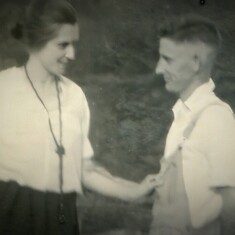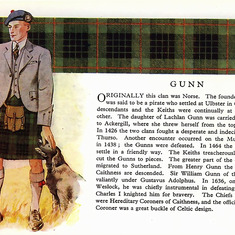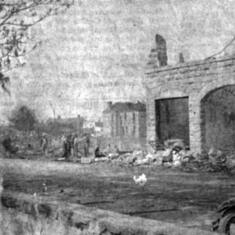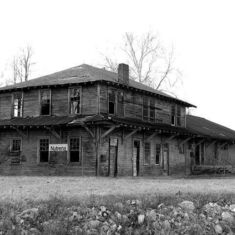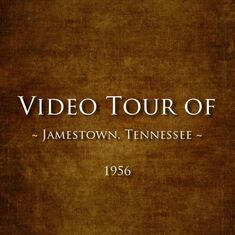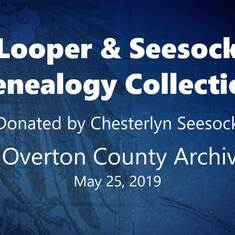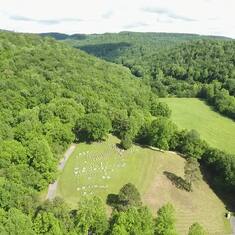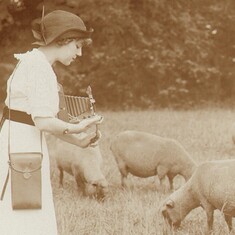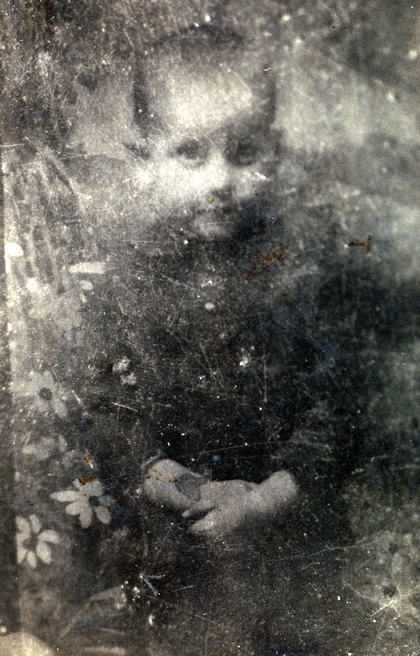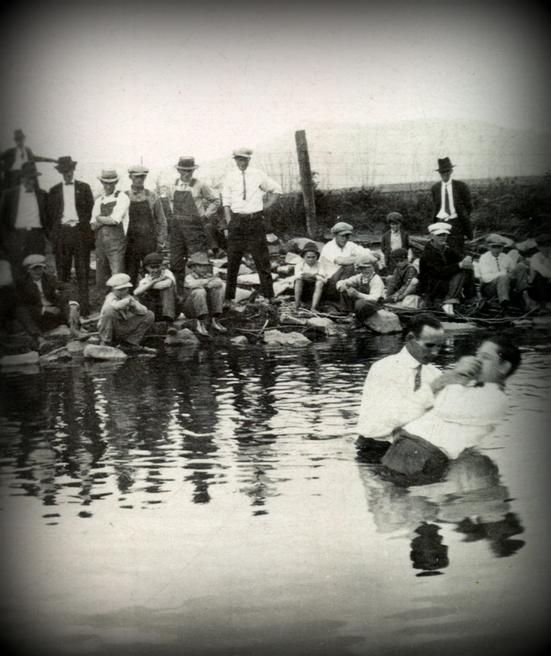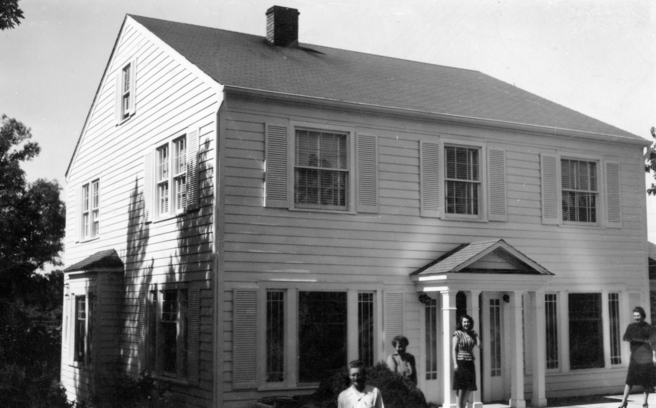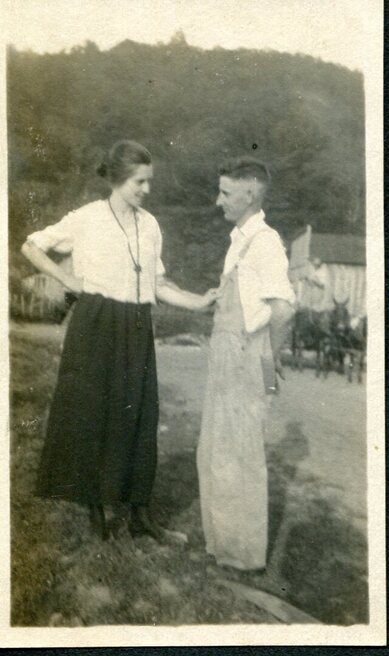Religion
The religious revival that took place towards the end of the 1800s carried over into the next century. In 1906, a religious census reported that church membership had increased by 150 percent since previous years. Due to the heavy influence of fundamentalist Protestant groups who believed in the word-for-word accuracy of the Bible, Tennessee was recognized as part of the so-called "Bible Belt" in the southern U.S.
In both cities and rural areas, new houses of worship were being built regularly, including some by the region's growing minority faiths, such as the immigrant Jewish population. To increase attendance, modern methods of promoting religion during Chester's time included church advertisements on billboards, lighted signs in front of church buildings, and advertisements in weekly papers. New Christian denominations appeared, including the Church of the Nazarene, which originated in Tennessee, as well as the Church of God, which began along eastern Tennessee and western North Carolina. Many of the newer religions at this time were still extremely opposed to drinking alcohol and using tobacco.
First Radio Broadcast, 1906
On Christmas Eve of 1906, the Canadian inventor Reginald Fessenden successfully executed the first radio broadcast—a Christmas concert sent out from a radio tower in Massachusetts to crews aboard United Fruit Company ships in the Atlantic Ocean. This was a major milestone in communication and made news around the world. Soon, people like 15-year-old Chester would enjoy this new technology for communication, news, and entertainment.
Pleasant Hill Academy, 1908
At some point, Chester became interested in furthering his education, and about 1908, began attending Pleasant Hill Academy. Pleasant Hill Academy was created to provide education to rural students on the Cumberland Plateau. The school was established by the American Missionary Association of the Congregational Christian Church and was a boarding school dedicated to liberal arts, sciences, agriculture, and vocational training. The school was also accredited by the University of Tennessee, and all graduates were automatically accepted to UT. Chester received his diploma in 1910 at the age of twenty.
Not long after graduating, he became romantically interested in his cousin, Stella Qualls. She was good-looking, vivacious, fun-loving, and he immediately found in Stella someone with whom he could share his dreams.
Stella and Chester made plans to be married at the Qualls home in Hanging Limb. At the time of their marriage on June 14, 1914, Chester was attending barber school in Nashville.
Chester's mother Sarah Ann Allred, passed away at the age of 42. Chester was 17.
Titanic Sinks, 1912
On the night of April 14, 1912, when Chester was 21, the RMS Titanic sank into the North Atlantic Ocean. Many people read about this tragic accident in the newspaper in the days and weeks following the crash. The Titanic had been sailing at full speed when the crew saw an iceberg but could not turn before it hit the boat's starboard (right) side. The crash and subsequent sinking killed more than 1,500 people and shocked American and European citizens, who believed the Titanic to be unsinkable. The lack of sufficient lifeboats also angered many people and prompted the establishment of the International Convention for the Safety of Life at Sea, which governs maritime safety. It also led to the establishment of the International Ice Patrol, which watches the frigid seas for potentially dangerous icebergs.
Chester Becomes an Entrepreneur, 1915
In 1915 Chester received a certificate from Tennessee to teach in elementary schools in the state. However, another event occurred which changed any plans he had for becoming a barber or teacher. On December 11th Harrison Copeland shot and killed Chester's brother, Bill, on the porch of his store at the Steel Bridge in Crawford. According to his obituary in the Livingston Enterprise dated December 13, 1915, "Harrison Copeland shot and killed William Looper at Crawford last Saturday. Reportedly they were disputing about a small store account, and some blows had been struck when Copeland drew a pistol and shot Looper twice, once in the head and the other in the chest. Looper was rushed toward Nashville on a train but died en-route."
Bill left behind a wife, Luella, and a seven-year-old daughter, Nicey. Chester never completely recovered from the loss of his older brother. He became a life-long hater of "dram-drinking, " never touching a drop himself.
In the 1920 U.S. Census, the Looper's were living in Overton County, District 10. Chester's occupation is listed as a "retail merchant" at a "general store." He had taken over his brother's business and was on his way to becoming the entrepreneur he was destined to be.
World War I, 1914 - 1918
When Chester was 23 years old, the Great War (later known as World War I) began. The assassination of Austria's Archduke Franz Ferdinand in Serbia on June 28, 1914, sparked the conflict, which would officially begin a month later. Years of nations increasing their military might and building in nationalism while engaging in alliances and imperialism quickly drew in combatants from around the globe. In battle were the Central Powers (consisting of Germany, Austria-Hungary, and the Ottoman Empire) and the Allied forces of Great Britain, France, Russia, Italy, Japan, and the United States. The combination of old military battle tactics and new elements like machine guns and chemical weapons led to fierce battles and death tolls the world had never seen. By the time the war ended in 1918, 21 million were wounded, and more than 9 million combatants and 7 million civilians had died as a direct result of the conflict.
While the war was raging overseas, many Americans were concerned with German U-boat attacks on ships crossing the Atlantic carrying American passengers, especially after the sinking of the Lusitania. Moreover, they worried that Germany would further incite the struggles involving the Texas/Mexico border. The Zimmerman Telegram, intercepted by British cryptographers, revealed a possible German-Mexican alliance was forthcoming, prompting the United States to enter the war in 1917. Many in Chester's community were outraged at the possibility, believing America's involvement was inappropriate and unnecessary, as the conflict began in Europe and concerning European problems; President Woodrow Wilson was propelled to a second term because he had kept the nation out of the conflict. Once American soldiers finally did enter the fray, patriotism and anti-German sentiments ruled the day.
America mobilized over 4,000,000 military personnel through voluntary enlistment and the passage of the Selective Service Act; 110,000 of these combatants were killed. Military training camps opened up across the country, and Chester and members of his family and community may have seen military personnel, wagons, and trucks passing through on their way to set up camps.
Many helped the war efforts on the home front by buying Liberty Bonds, war savings stamps, and contributing to other wartime organizations. Some farmers sectioned new space of their farms for food crops to aid in feeding soldiers. Others took part in food-conservation programs where citizens abstained from certain foods based on the day, such as wheatless Mondays and Wednesdays, to help conserve for the war effort.
An Allied victory was reached with an armistice on November 11, 1918, but as soldiers returned home with both visible and unseen battle wounds, the world would never be the same.
Flu Pandemic, 1918
A terrible flu pandemic struck the United States and the entire world when Chester was 27. The Spanish Flu of 1918 infected over a third of the world's population and killed more than 650,000 Americans alone, as the medical community desperately searched for better treatments or a vaccine. Many public gathering spots like theaters, saloons, sports arenas, and shops were temporarily closed, and some people in Chester's community resorted to wearing masks any time they went into town. Hospitals and funeral parlors were overwhelmed, leaving many poor Americans to bury their own loved ones. With World War I raging at the same time, it made for a very challenging year for just about everyone.


